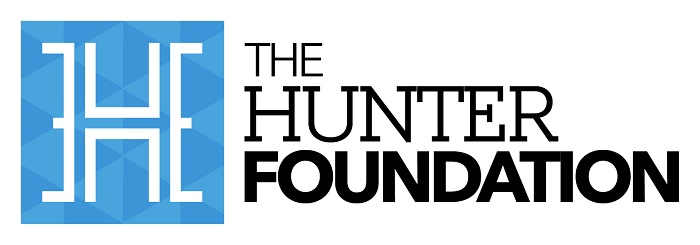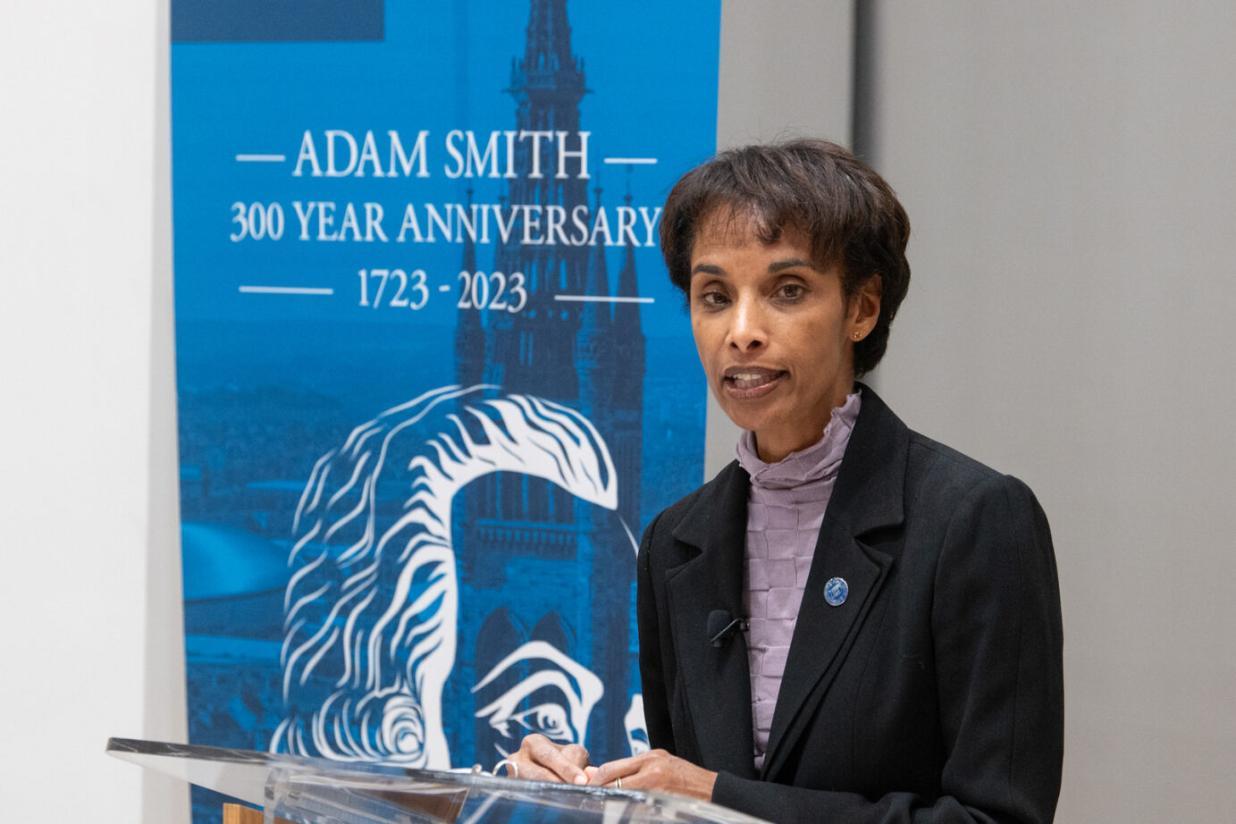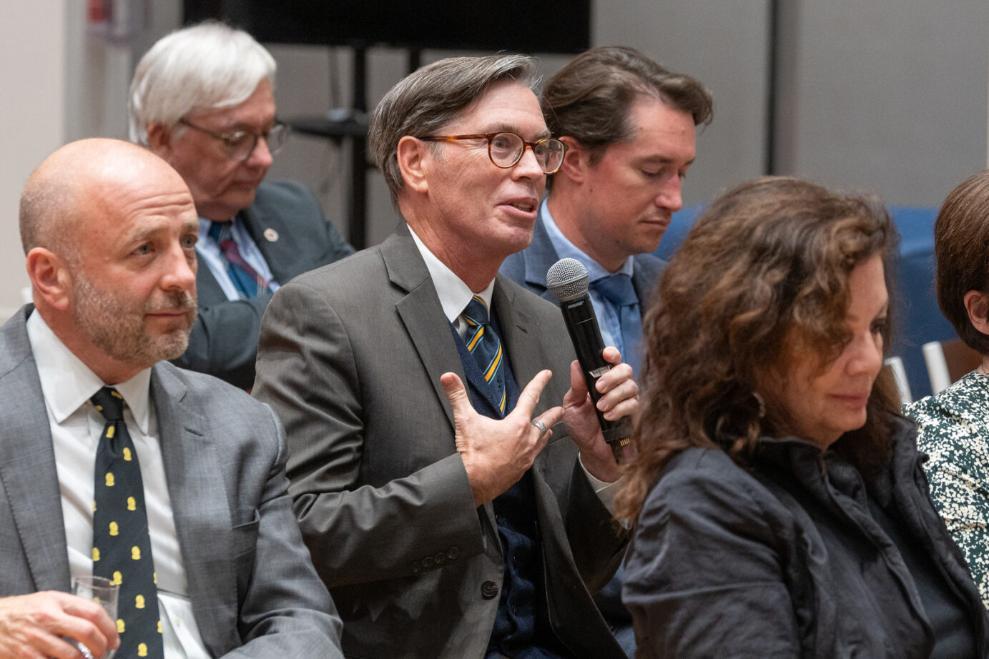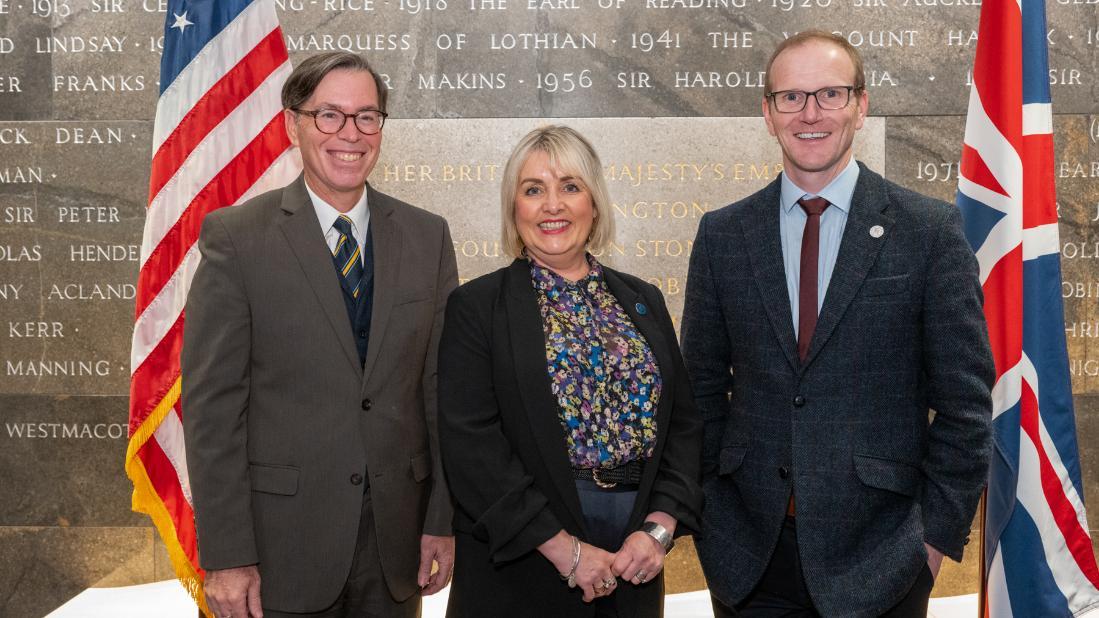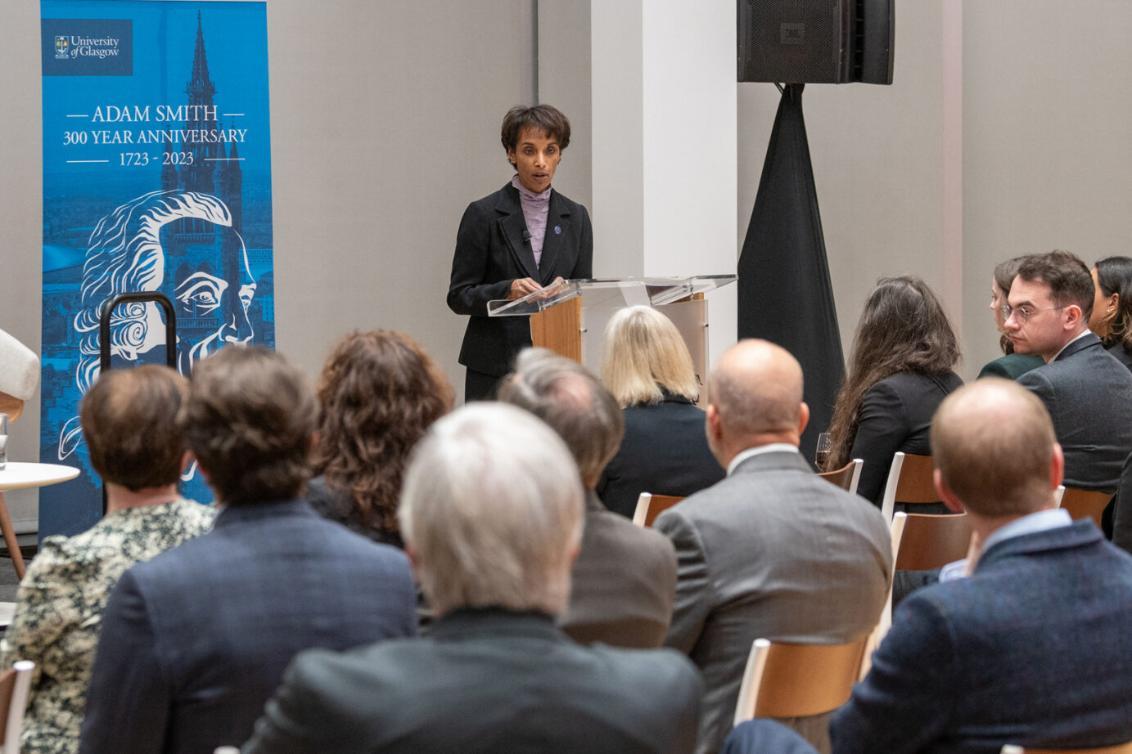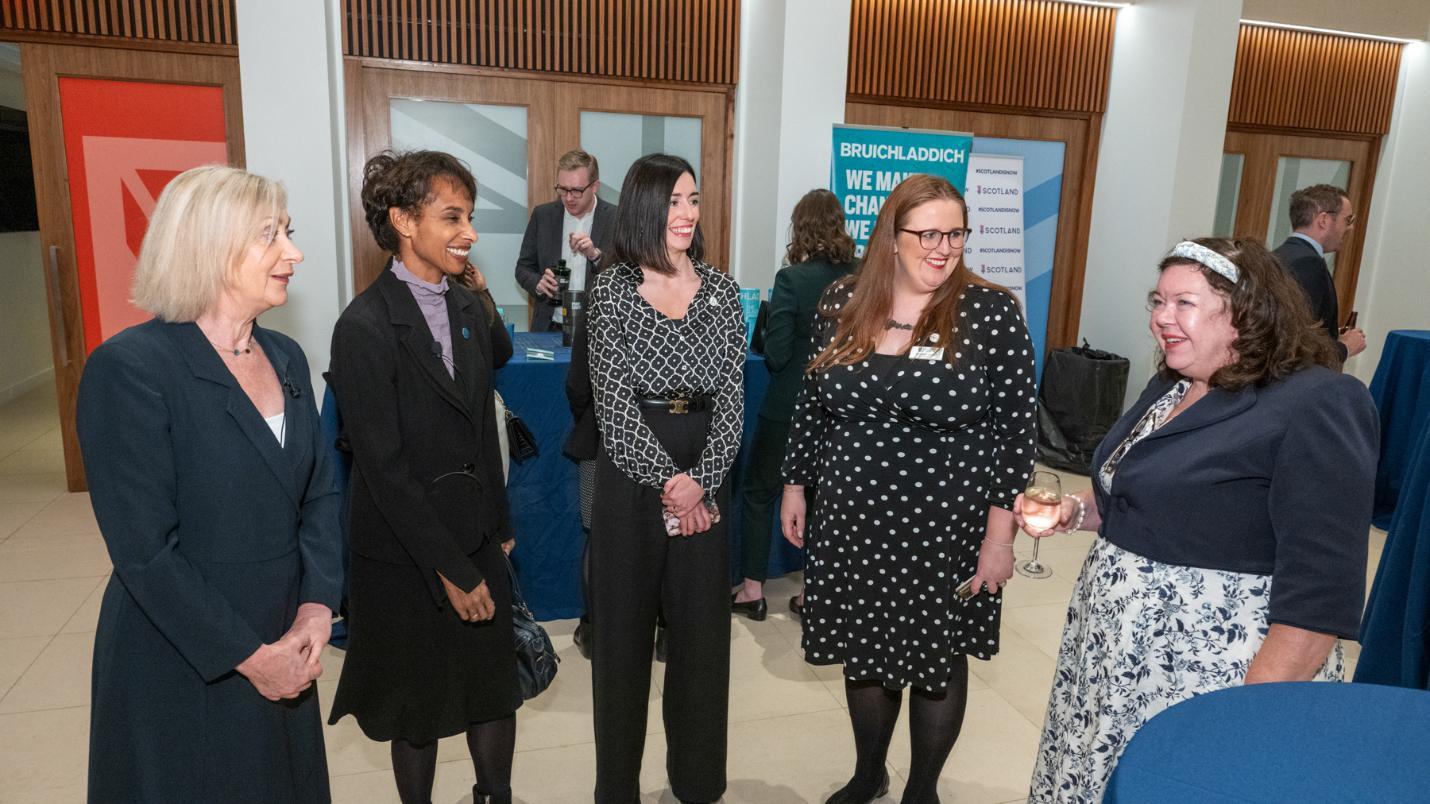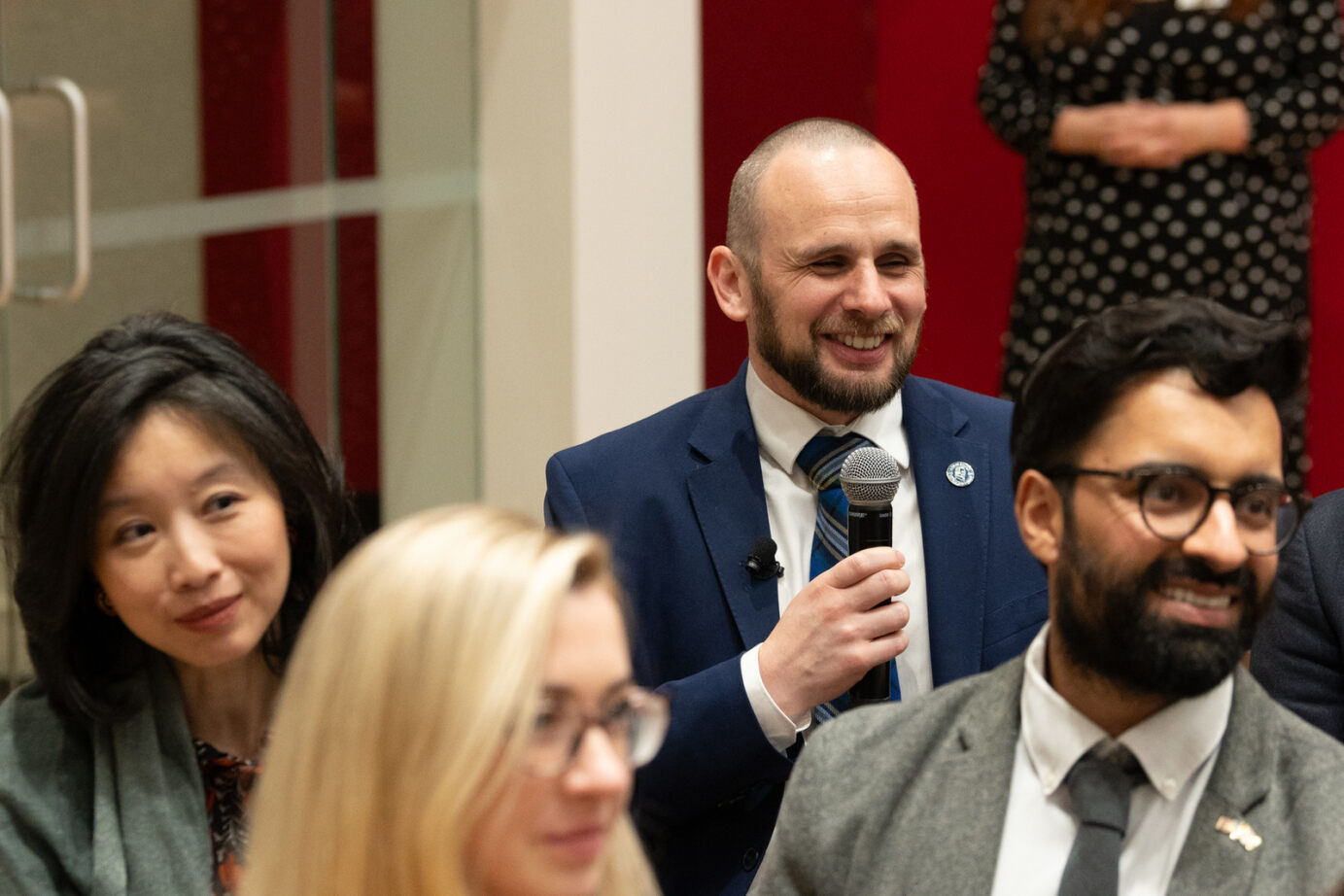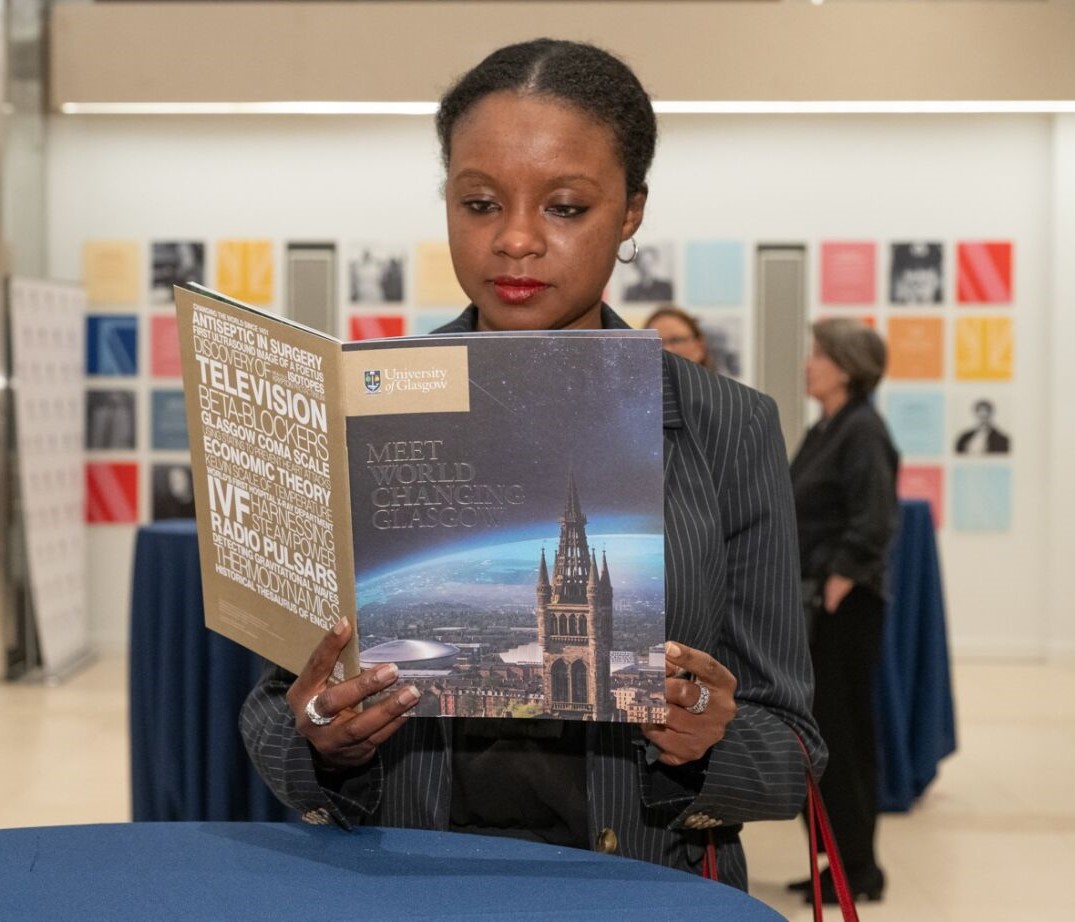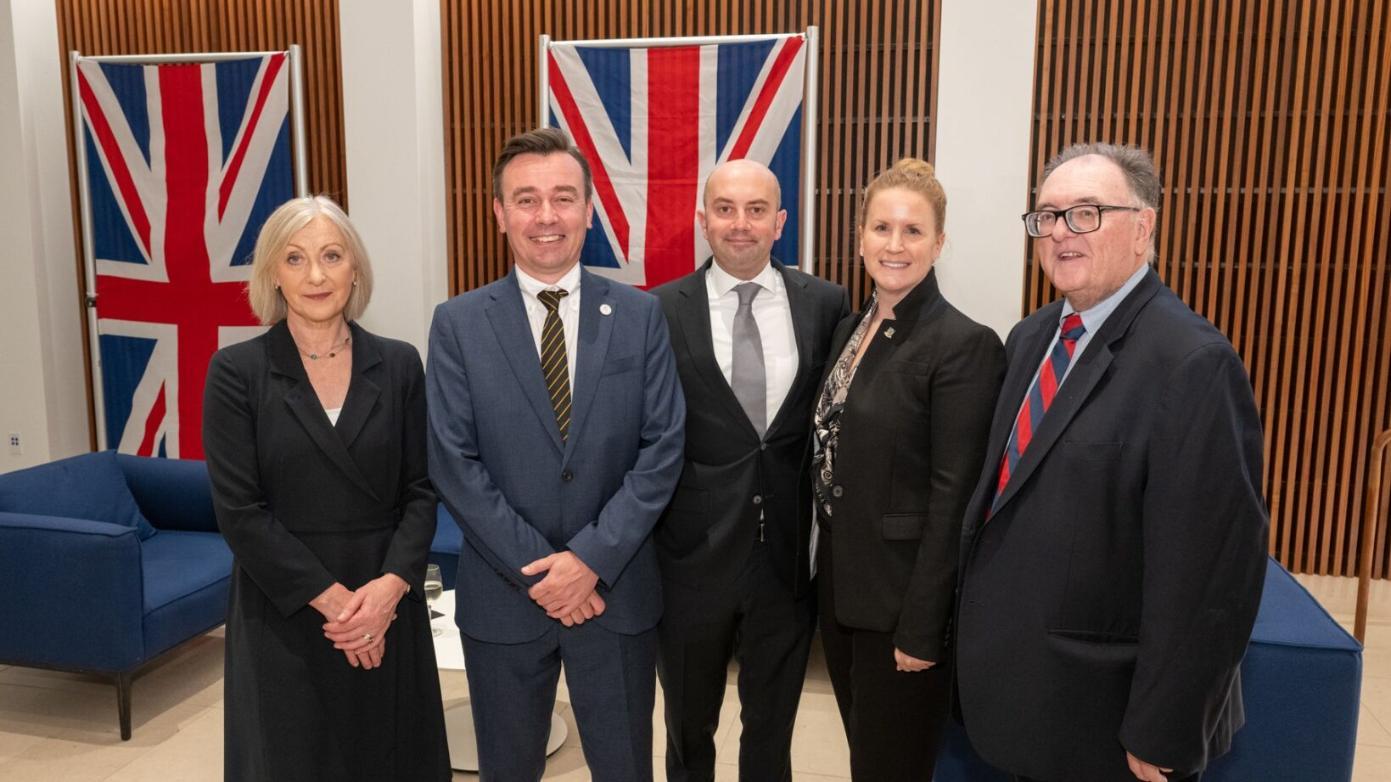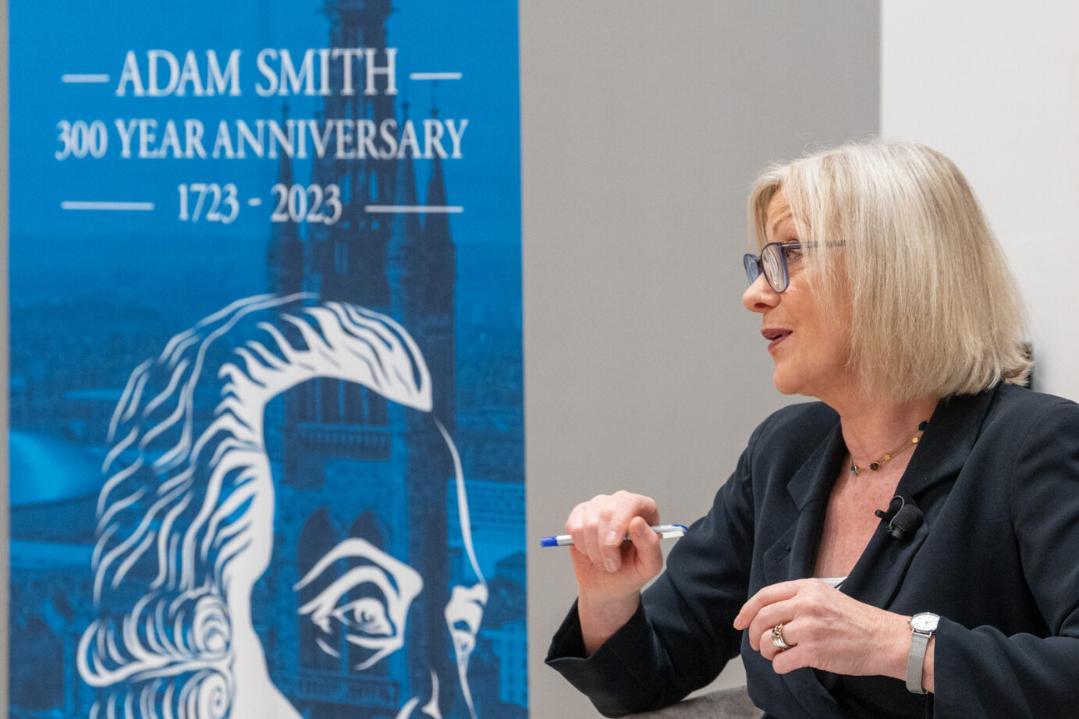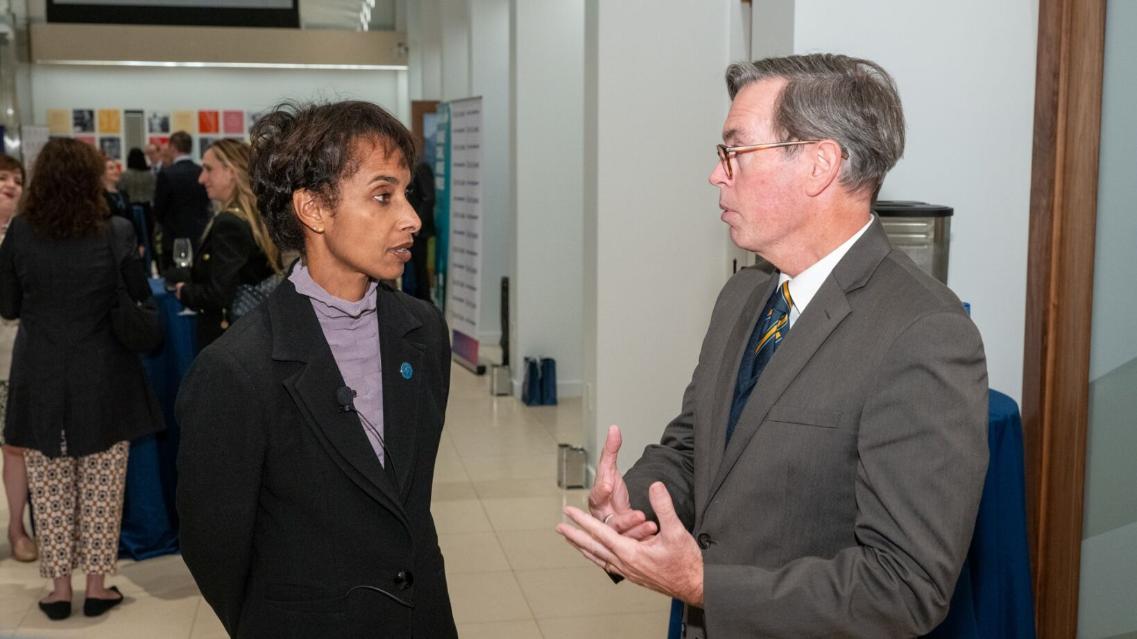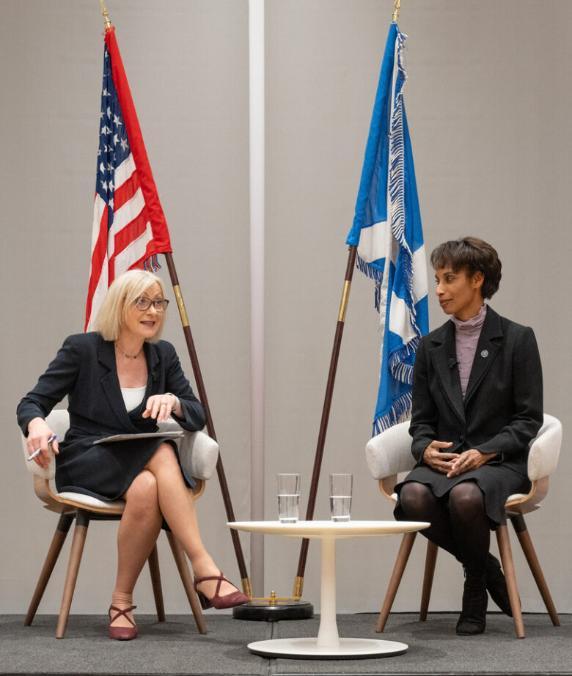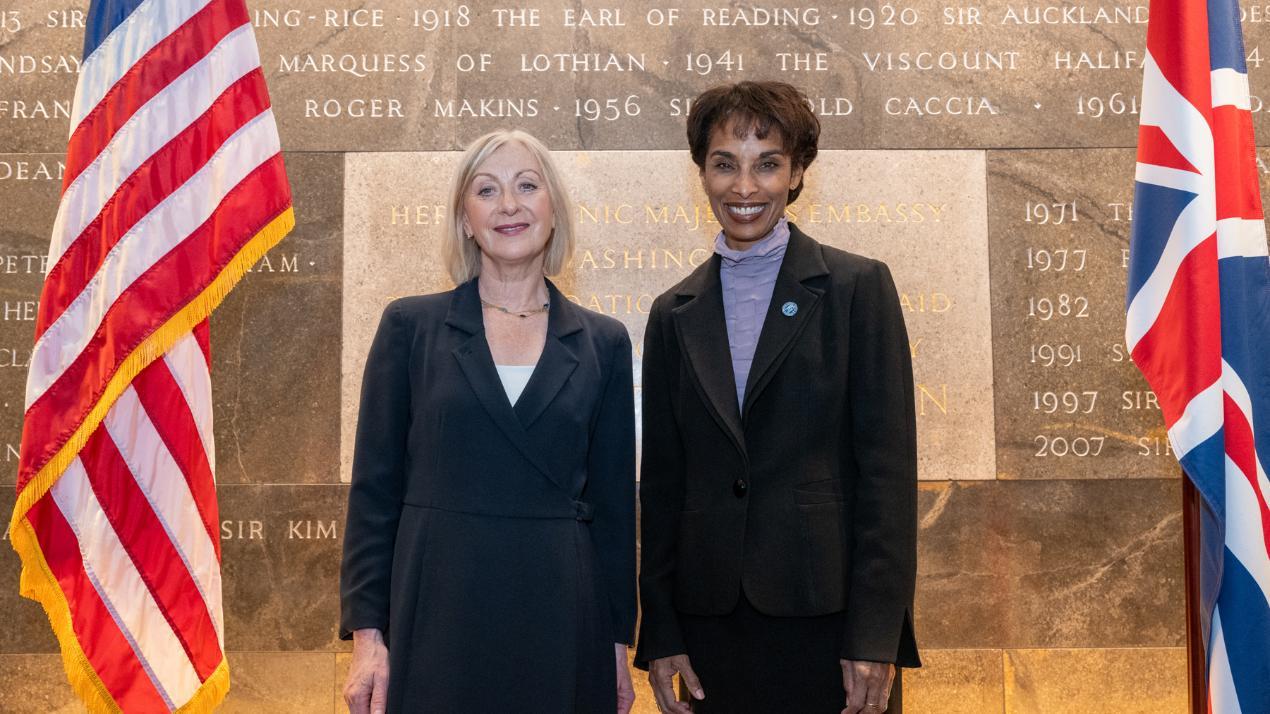Government’s Role in Today’s Economy: What Would Adam Smith Say?
‘Government’s Role in Today’s Economy: What Would Adam Smith Say?’
Professor Cecilia Rouse, who served as Chair of the Council of Economic Advisers for President Joe Biden’s Government between 2021 and 2023, delivered the third and final Hunter Foundation Lecture of Adam Smith’s tercentenary year at the British Embassy in Washington DC on 19 October.
“When we hear the name, Adam Smith, we think of the free market” she began by saying. “In its simplest terms, his economic model emphasizes that prices can help allocate resources to their most productive uses.”
It was this economic model that influenced the USA’s adoption of favouring the private sector over the public sector in the 1980s and 90s. However, Professor Rouse cautioned, this was an overly simplified way of interpreting Smith, perhaps by those who had not read The Wealth of Nations. “While Smith certainly believed in the virtues of the private market, he also recognized its limitations.”
Subsequently, Professor Rouse argued, “This retreat of the U.S. public sector from economic activity has played a role in some of the greatest economic challenges in this country. For example, average productivity gains have slowed in the past 75 years…the reasons for this are not fully understood but arguably one factor has been an overreliance on the private sector.”
She expanded on this, saying, “Smith believed that when externalities exist - when the benefits extend to others beyond the private actors making the investments, the government should intervene. Education helps not only the student in a particular school, but the overall economy benefits from an educated workforce. Combatting climate change by reducing carbon dioxide emissions is costly for the individual producer, yet this helps society as a whole grappling with the negative impacts of a warming planet. Smith understood that the public sector needs sufficient resources to fulfil its necessary role in society.”
Ultimately, Smith was a “pragmatist” in his view of the role of the government, pointed out Professor Rouse, citing the views of the UofG’s Professor Craig Smith. “He not only believed the public sector should be involved in more familiar justifications such as national security, the existence of externalities, and legal and political order, but also when “some consideration other than economic efficiency” may be justified.”
It is not only physical capital that needs public sector investment. “Smith argued that human capital is also key. There are many ways we invest in human capital: education, training, health care and the like” said Professor Rouse, before focusing on one way to invest in human capital that is gaining ‘long overdue attention’ - childcare. “Adam Smith would recognize that the childcare market is a good example of one that cannot function well with just private sector investment.”
She went on to stress that investing in children is one of the most productive investments a society can make. “Investments in child health and education have been shown to have positive impacts for not only the individual child but for society as well.”
Professor Rouse concluded: “I believe that were Adam Smith advising policymakers today, he would advise that if they want to maintain and improve quality of life, the U.S. must accept that a well-functioning and adequately resourced public sector must partner with the private sector. And I believe he would include the market for childcare as a prime example for this model.”
Professor Sara Carter, Head of the College of Social Sciences at the University of Glasgow, attended the talk to represent the University of Glasgow.
Professor Rouse was the 30th Chair of the Council of Economic Advisers, nominated by President Joe Biden. She was the first Black American to hold this position.
Professor Rouse will commence her new role as President of the Brookings Institution, an American public policy think tank, from January 2024. She is also the Katzman-Ernst Professor in Economics and Education at Princeton University.
Watch the full lecture:
